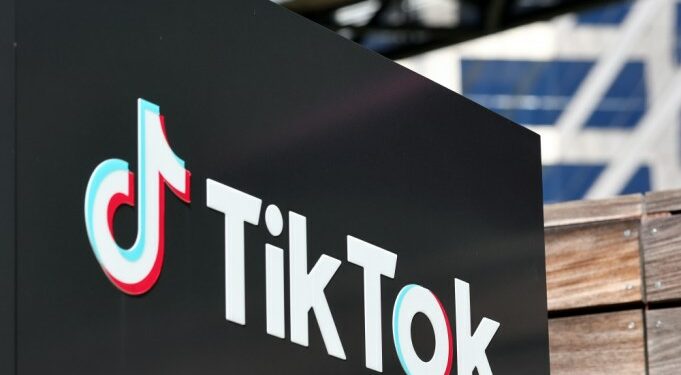In less than two hours before a United States ban was set to take effect, TikTok went offline in the United States on Saturday night.
Users who attempted to access the app were greeted with a message stating, “Sorry, TikTok isn’t available right now.
A law banning TikTok has been enacted in the U.S. Unfortunately, that means you can’t use TikTok for now.”
This move came after the U.S. Supreme Court upheld a ban that had garnered bipartisan support in Congress and was signed into law by President Joe Biden in April.
The law prohibits American companies from hosting or serving content for the Chinese-owned app unless it is sold to a U.S.-based or allied buyer.
However, TikTok may not remain offline for long. The company hinted it could return as early as Monday, stating, “We are fortunate that President Trump has indicated that he will work with us on a solution to reinstate TikTok once he takes office. Please stay tuned!”
President-elect, Donald Trump, suggested he would likely delay the ban for 90 days after his inauguration, although he had not made a final decision.
“I think that would be, certainly, an option that we look at. The 90-day extension is something that will be most likely done, because it’s appropriate. You know, it’s appropriate. We have to look at it carefully. It’s a very big situation,” he remarked in a phone interview with NBC News on Saturday.
He added, “If I decide to do that, I’ll probably announce it on Monday.”
The TikTok blackout and the possibility of its reinstatement is the latest development in a saga that has left the app’s future uncertain.
TikTok, along with other apps owned by its parent company ByteDance—like CapCut—were also removed from Apple’s App Store and Google Play Store.
Lawmakers have expressed concerns about TikTok’s connections to China, fearing the platform’s access to vast amounts of data could compromise national security.
Many U.S. users, including influencers and small businesses reliant on TikTok, expressed concern over the ban but remained hopeful that the app would find a way to stay online.
With the Supreme Court’s decision final, those hopes were dashed. Some companies, including those operating app stores and servers, expressed concern about facing legal consequences for violating the terms of the ban.
These companies have since pledged to cease supporting the app, which led TikTok to take the app offline.
Meanwhile, Trump, who has been vocal about TikTok’s potential dangers for years, is positioning himself as the app’s potential rescuer.
He shared statistics about his popularity on TikTok on his Truth Social account and questioned, “Why would I want to get rid of TikTok?”
TikTok’s CEO, Shou Chew, met with Trump in the lead-up to the ban and is expected to attend his inauguration on Monday.
In a message sent to its employees on Saturday, TikTok acknowledged the disappointment and assured them that work was underway to restore the app.
“We know this is disappointing for you not only as employees, but as users. However, we are fortunate that President Trump has indicated that he will work with us on a solution to reinstate TikTok once he takes office. Please know our teams are working tirelessly to bring our app back to the U.S. as soon as possible,” the message read.
A White House source emphasized that there would be no fines imposed by the Biden administration on Sunday regarding TikTok’s status.
However, some officials are content with the temporary blackout, given the bipartisan support behind the law.
The White House dismissed TikTok’s preemptive move as a “stunt,” with press secretary Karine Jean-Pierre saying, “We see no reason for TikTok or other companies to take actions in the next few days before the Trump administration takes office on Monday.”
Despite the law’s looming deadline, TikTok was hopeful about a resolution. In a statement, the company said it expected service providers to cut off access to the app by 12:01 a.m. ET Sunday.
In response to the growing uncertainty, other apps like the TikTok-like Lemon8, also owned by ByteDance, have risen in popularity on app stores, but may face the same fate as TikTok.
Trump’s previous comments on TikTok’s importance suggest that any blackout might not last long.
The president-elect is reportedly considering an executive order that would pause the ban and allow for a longer-term solution.
However, Trump will face opposition, especially from Republican senators like Josh Hawley of Missouri and Tom Cotton of Arkansas, who support the ban. Cotton expressed his views on X, saying, “ByteDance and its Chinese Communist masters had nine months to sell TikTok before the Sunday deadline. The very fact that Communist China refuses to permit its sale reveals exactly what TikTok is: a communist spy app.”
Analyst Richard Greenfield from LightShed Partners, who has been following the situation, predicts that TikTok will ultimately remain available in the U.S.
Meanwhile, Perplexity AI, a startup based in San Francisco, has reportedly made a bid to merge with TikTok, further adding complexity to the ongoing discussions.













